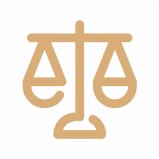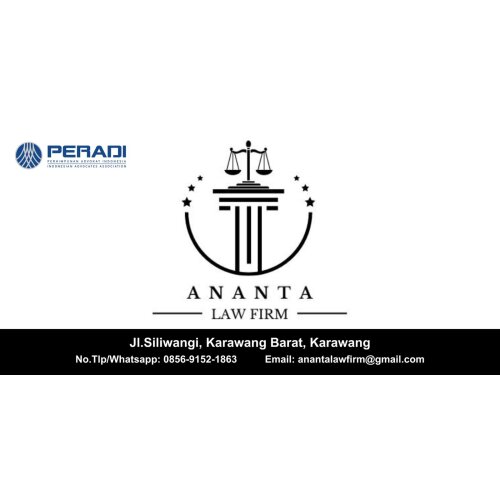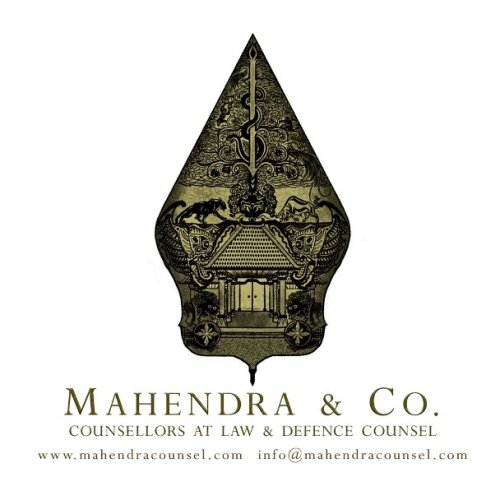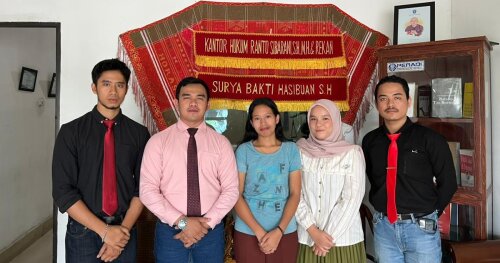Best Sports Law Lawyers in Indonesia
Share your needs with us, get contacted by law firms.
Free. Takes 2 min.
Or refine your search by selecting a city:
List of the best lawyers in Indonesia
About Sports Law in Indonesia
Sports law in Indonesia encompasses a broad range of legal disciplines and regulations that apply to both professional and amateur sports. This includes governance issues, intellectual property rights, commercial contracts, and dispute resolution mechanisms. The increasing commercial importance of sports and its role in cultural diplomacy have led Indonesian lawmakers to refine the legislative framework governing sports activities, focusing on maintaining ethical standards, fair competition, and ensuring the welfare of athletes.
Why You May Need a Lawyer
Individuals and organizations might require legal assistance in Sports Law for several reasons. Common situations include negotiating and drafting contracts for athletes, handling sponsor and endorsement deals, resolving disputes between players and sports clubs, addressing employment issues, dealing with doping allegations, navigating intellectual property matters such as merchandising and broadcasting rights, and complying with sports-specific regulations and standards.
Local Laws Overview
Key aspects of Indonesian Sports Law include the Law on National Sports System (Law No. 3/2005), which outlines the general framework for sports governance. It covers subjects like the organization of sporting events, athlete eligibility, anti-doping provisions, and the responsibilities of sports organizations. Moreover, the Indonesian Olympic Committee and other local sports bodies play a significant role in regulating sports activities and ensuring adherence to global standards. Crucial elements are the promotion of sports development, adherence to international norms, and ensuring fair play.
Frequently Asked Questions
What is the role of the Indonesian government in sports?
The government, through the Ministry of Youth and Sports, is responsible for the development and regulation of sports activities in Indonesia. It establishes policies, supports sports development, and ensures the implementation of laws and regulations relevant to sports.
Are there specific laws for athlete contracts?
There are general employment laws that apply to athlete contracts, alongside specific regulations within the Law on National Sports System which outlines athletes' rights and obligations, the role of sports agents, and contract procedures.
How does Indonesia handle doping cases?
Indonesia adheres to the World Anti-Doping Agency (WADA) guidelines. The Anti-Doping Agency of Indonesia (LADI) conducts tests and handles cases, ensuring that athletes avoid prohibited substances and maintain fair play.
What legal actions can an athlete take if they are unfairly dismissed by a club?
An athlete can file a complaint with the National Sports Dispute Resolution Committee or seek arbitration to resolve disputes with their clubs. Mediation offers another alternative for settlement outside of court.
What are the intellectual property considerations in Indonesian Sports Law?
Intellectual property in sports involves trademarks for team logos, copyrights for broadcasting and merchandising, and personality rights for athletes. Ensuring these rights are protected through registration and contracts is crucial.
How are sports organizations regulated?
Various bodies, including the Indonesian Olympic Committee and individual sports federations, oversee sports organizations. They set regulations, standards of conduct, and ensure compliance with national and international laws.
What is the process for resolving disputes in sports?
Dispute resolution typically involves mediation, arbitration, or proceedings through the National Sports Dispute Resolution Committee. International disputes may involve bodies like the Court of Arbitration for Sport (CAS).
Are there special considerations for amateur sports?
Amateur sports are governed under similar regulations but do not have the same commercial laws as professional sports. Emphasis is placed on promoting access, development, and adherence to national sports systems.
How does sports law impact broadcasting rights?
Broadcasting rights are crucial for sports media and are closely regulated under intellectual property laws. Contracts dictate terms for content use, ensuring rightful financial distribution and adherence to copyrights.
What are the penalties for violating sports law in Indonesia?
Penalties can include fines, suspension from activities, and in severe cases, bans from participation. Legal action can also result in compensation payments and other corrective measures.
Additional Resources
To further understand Sports Law in Indonesia, consider engaging with resources such as the Ministry of Youth and Sports, the Indonesian Olympic Committee, and the Anti-Doping Agency of Indonesia. Joining local sports law associations or following regulatory updates from international bodies like WADA can also be beneficial.
Next Steps
If you require legal assistance in Sports Law, consider seeking a lawyer specializing in this field. Start by consulting Indonesian bar associations or legal offices that offer expertise in sports-related issues. Ensure the attorney's experience aligns with your specific needs, be it contract negotiation, dispute resolution, or compliance with sports regulations. Initial consultations can provide insights into the feasibility and direction of your legal concerns.
Lawzana helps you find the best lawyers and law firms in Indonesia through a curated and pre-screened list of qualified legal professionals. Our platform offers rankings and detailed profiles of attorneys and law firms, allowing you to compare based on practice areas, including Sports Law, experience, and client feedback.
Each profile includes a description of the firm's areas of practice, client reviews, team members and partners, year of establishment, spoken languages, office locations, contact information, social media presence, and any published articles or resources. Most firms on our platform speak English and are experienced in both local and international legal matters.
Get a quote from top-rated law firms in Indonesia — quickly, securely, and without unnecessary hassle.
Disclaimer:
The information provided on this page is for general informational purposes only and does not constitute legal advice. While we strive to ensure the accuracy and relevance of the content, legal information may change over time, and interpretations of the law can vary. You should always consult with a qualified legal professional for advice specific to your situation.
We disclaim all liability for actions taken or not taken based on the content of this page. If you believe any information is incorrect or outdated, please contact us, and we will review and update it where appropriate.
Browse sports law law firms by city in Indonesia
Refine your search by selecting a city.
















